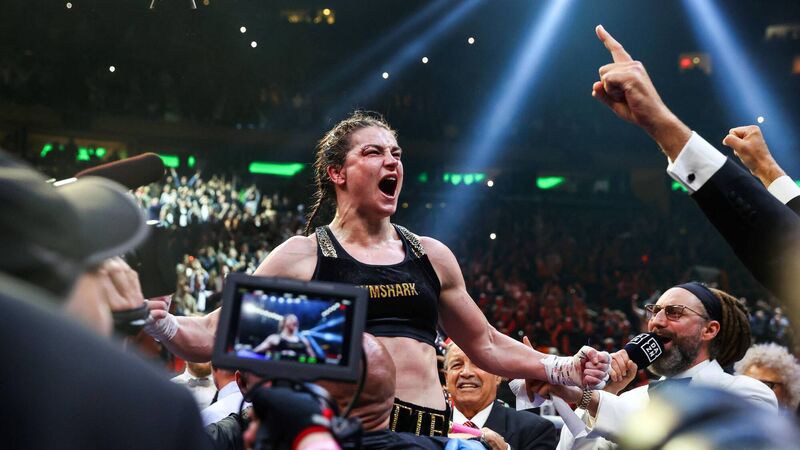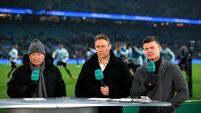Ian Mallon: 2022 was a year in which normal rules no longer applied

LEGENDARY FIGHT: Katie Taylor celebrates winning her mega fight with Amanda Serrano in April. Pic: INPHO/Gary Carr
There's no stock price for the Irish sports business sector as a single market – but if there was such an index, 2022 would present a sporting ISEQ of unpredictable volatility and trend-changing movements.









